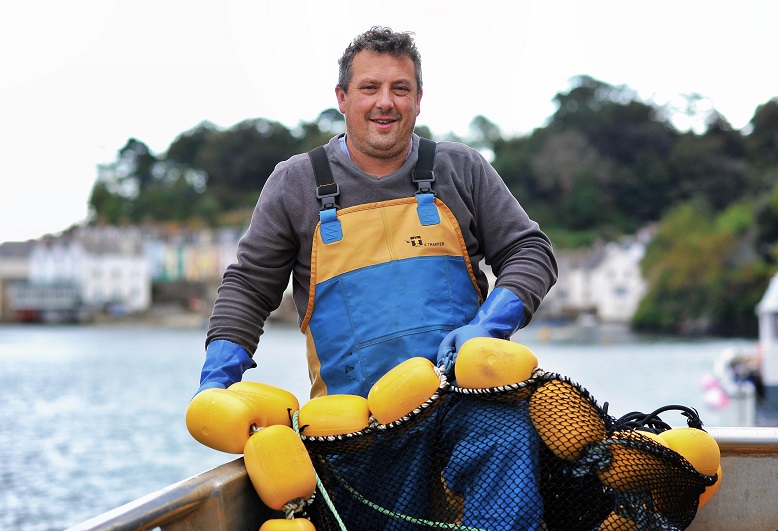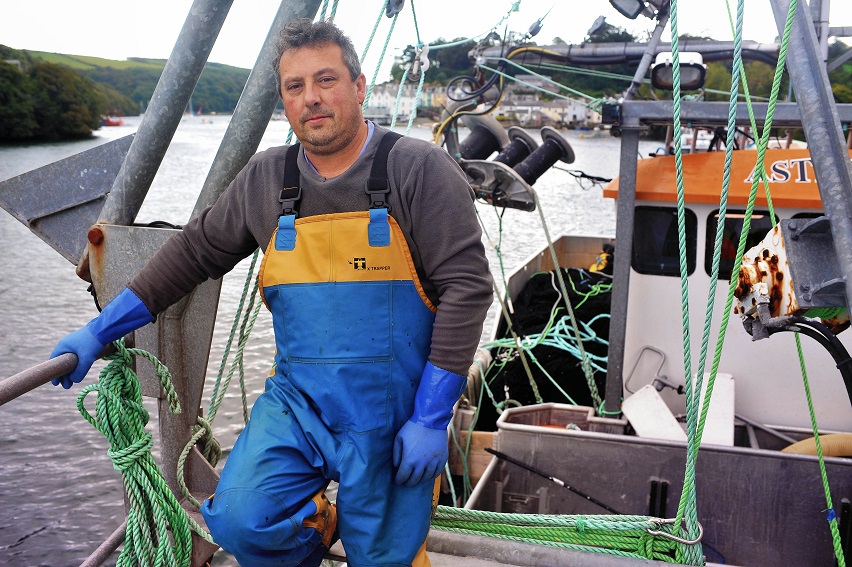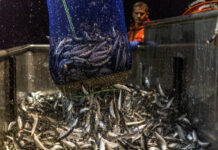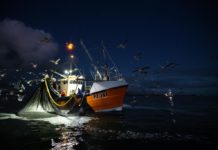As a young man in his late 20s Peter Bullock made a living sailing luxury yachts around the Mediterranean for the super-rich.
But when he was offered the opportunity to skipper a boat fishing for pilchards in Cornwall, he leapt at the chance.
“Except we don’t call them pilchards now,” he points out. “They’re Cornish sardines.”
Twelve years later, the catch he brings back to shore each morning is being sold not in cans, but on the fresh fish counters of upmarket supermarkets like M&S and Waitrose.
It was a meeting with businessman Andrew Lakeman, whose family run and own Ocean Fish, that sealed his move from the sun and sand of Italy back to working night shifts at sea and a home in Newlyn, Cornwall.
“Andrew’s grandparents had drift-netted pilchards back in the day and he had a dream that he could do the same,” Bullock recalls.
At that time, demand for pilchards had been falling for half a century. Local canneries had disappeared and the fish had become known in Britain as being fit only for impoverished students.
But it was the brainwave of another local businessman, who came up with the idea of marketing the fish by their other name, sardines, that transformed the industry in Cornwall.
“I’d just spent a few years living in the Mediterranean, where everybody loved sardines, and I could see the potential of what Andrew was talking about,” Bullock says.
Within a few weeks, Bullock had turned his back on yachts and had agreed to skipper Lakeman’s second boat – a 46ft trawler called the Asthore – and start fishing for Cornish sardines.
Since then, two key trends have helped boost the popularity of the fish; healthy eating and food provenance.
Cornish sardines – which secured protected food status in 2009, placing them alongside Melton Mowbray pork pies and Stilton cheese in recognition of their quality as a food – tick both boxes, being packed full of Omega-3 oils and being sustainably caught here in the UK.
Because they are caught using a ring and net system, Bullock and his crew can track down and target huge shoals of sardines as they congregate at dusk and bring them onto his boat without any other bycatch.
Working with the other boats in his fleet, he can also closely monitor how much fish is being caught on any night and release what’s not needed, allowing fish stocks to remain healthy.
As demand for Cornish sardines has continued to grow, Bullock hasn’t looked back.
Speaking ahead of Seafood Week (October 6-13), Bullock, now 42, says: “In the first year I was involved, the market grew by 300%.
“It wasn’t just local shops that wanted them – the supermarkets got involved, the market went bang, and suddenly, even our two boats together weren’t big enough.”
In fact, business is going so well that Ocean Fish is about to take delivery of its fourth boat, a £1 million 46ft trawler called the Vesta capable of landing a further 20 tonnes of sardines a night.
Similar investments in the on-shore business means that even when the fleet is in a position to land up to 70 tonnes of sardines a night, the fish that is brought in can be processed and in the supermarkets within 48 hours.
What isn’t sold to UK supermarkets, in local markets or restaurants or on the stalls at Billingsgate Market in London, can then be exported to Europe, where the taste for the small fish has never waned.
“Cornish sardines are a premium quality product. People seemed to forget about that for a while, but they’ve wised up now. They want to know where their food comes from now, and they want high quality, local food. In Cornwall that’s exactly what we catch.”








